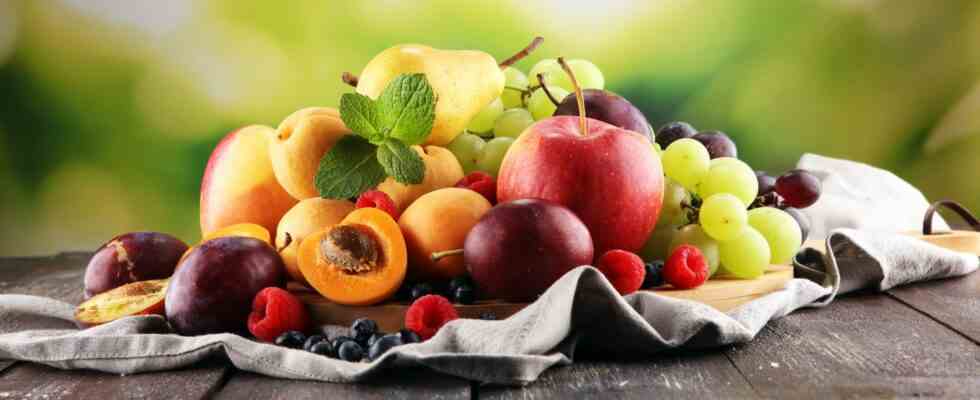This is how fruits lose their healthy properties
fruit should not be missing from a healthy diet. In common nutritional recommendations, five servings of fruit or vegetables advised per day. However, not every type of fruit consumption is beneficial for health. A nutritionist gives four examples of how fruits lose most of their benefits.
Beth Czerwony is a nutritionist at the renowned Cleveland Clinic in Ohio (United States). In a recent post, the expert explains that many common ways of eating fruit can negate the health benefits of the fruit. Especially the processing method plays a crucial role in this context.
Processed fruit often contains added sugar
fruit is full vitamins and nutrientsbut is also rich in natural sugar. Fruits can therefore also be regarded as “nature’s sweets”. Many processing methods are designed to bring out that sweetness even more, pushing the health benefits into the background.
dried fruit
Dried fruit are a popular snack. They are also a durable alternative to fresh fruit. dried fruit contains about the same amount of nutrients as fresh fruit. In small amounts, it can even enrich the diet.
The problem at dried fruits according to Czerwony, however, is that the water content of the fruit is lost, which means that the satiating effect missing. The nutritionist illustrates this with a simple comparison: “Eating 15 grapes appears to you as a greater amount of nutrition than eating 15 raisins.”
Through the drying process, the natural sugars concentrated on a smaller area in the fruit. When eating dried fruit, large amounts of sugar quickly enter the body at once. To make matters worse, many dried fruit products still additionally sweetened will.
“This means we need to be careful when eating dried fruit”, emphasizes Czerwony. Otherwise, it could easily happen that the portion size is underestimated and too much sugar is consumed.
Canned fruit
Eating canned pickled peaches or tangerines for dessert is popular, easy, and common. However, the fruits are often in sugar syrup pickled to make the fruit more durable and sweeter.
sugar and corn syrup are cheap ways to make food tastier. However, the regular consumption of such sweeteners is increased risk of disease connected, for example with type 2 diabetes and obesity. The nutritionist therefore recommends making sure when buying canned fruit that the fruit no added sugar were inserted.
fruit juice
Simply drinking the juice of the fruit instead of eating the whole fruit sounds like a sensible alternative at first. But even in 100 percent fruit juice the sugar content is extremely high and comparable to sugared lemonade. In addition, when squeezing out, a large part of the important fiber lost.
Already a glass fresh pressed orange juice contains about 23 grams of sugar and is therefore not far from the daily maximum amount of sugar that the American Heart Association is recommended.
For more information, see the article “Nutrition: How healthy is fruit juice?“.
frozen fruit
frozen fruits are the healthiest alternative to fresh fruit, but caution is advised here as well. “It’s not uncommon for it to be coated in sugar to make it taste better”, reports Czerwony. Therefore, when buying frozen fruit, you should also check the packaging to see whether sugar has been added or not.
Prefer fresh fruit whenever possible
Dried, pickled or frozen fruit and fruit juices can be a useful addition to the diet in small quantities and without added sugar. But fresh fruit “always the best choice”, emphasizes Czerwony. According to her, one should “know what you’re eating and watch the portion sizes”. (vb)
Author and source information
This text corresponds to the requirements of medical specialist literature, medical guidelines and current studies and has been checked by medical professionals.
Author:
Graduate editor (FH) Volker Blasek
Sources:
- Cleveland Clinic: 4 Ways We Eat Fruit That Aren’t as Healthy as You Think (published: 11/04/2022), health.clevelandclinic.org
Important NOTE:
This article contains general advice only and should not be used for self-diagnosis or treatment. He can not substitute a visit at the doctor.

